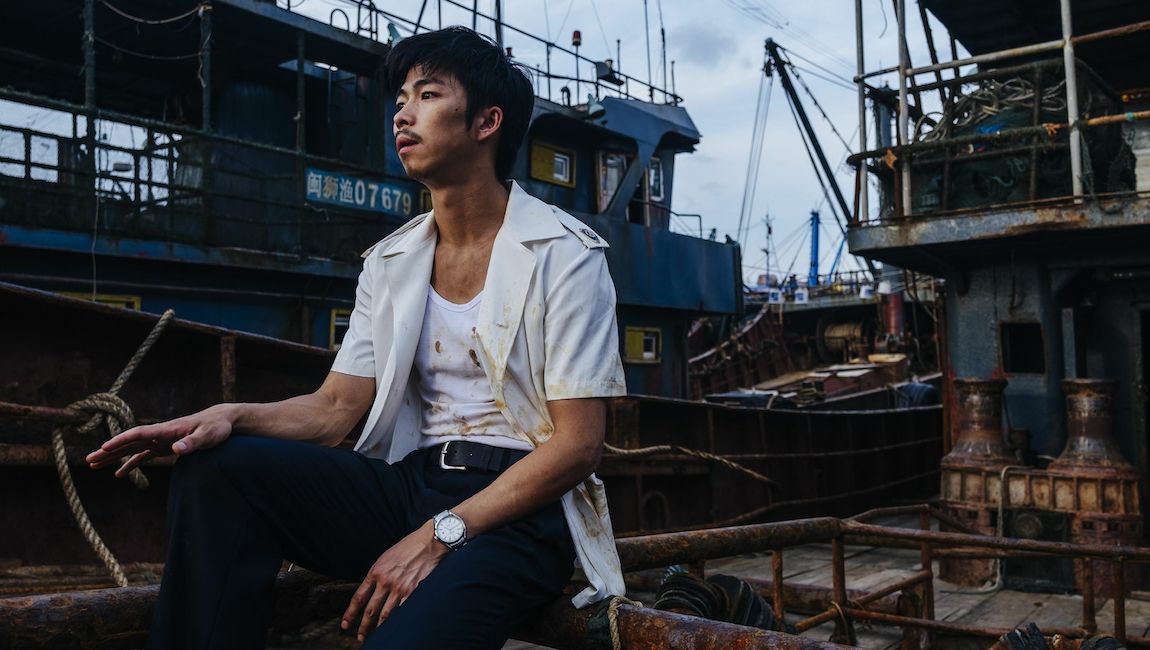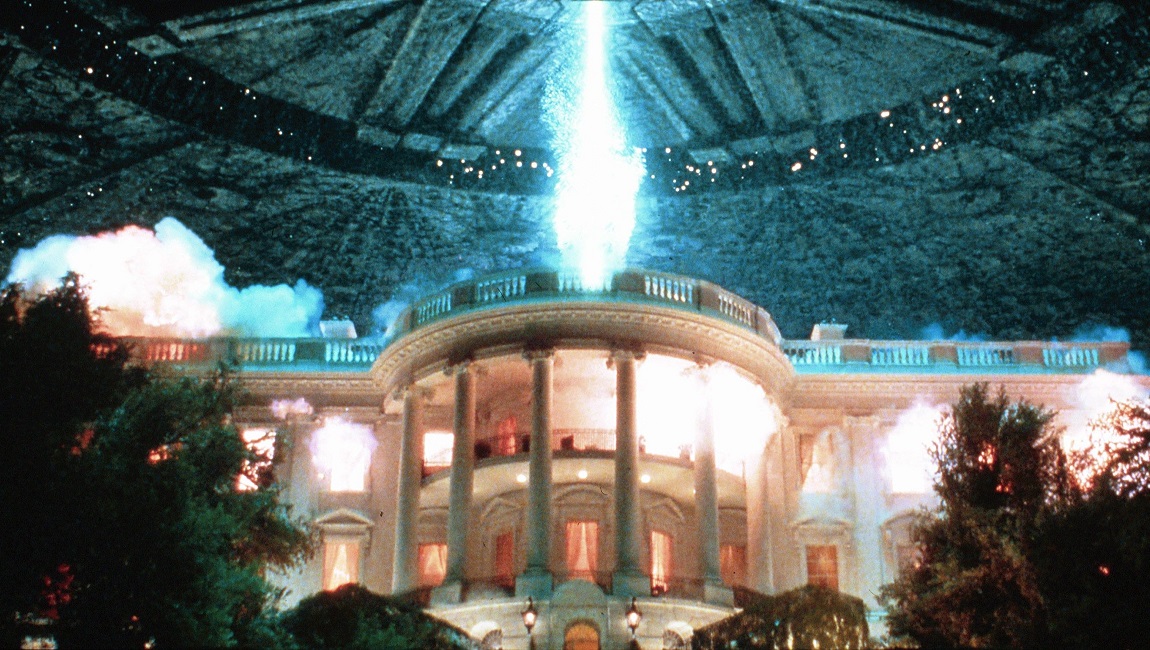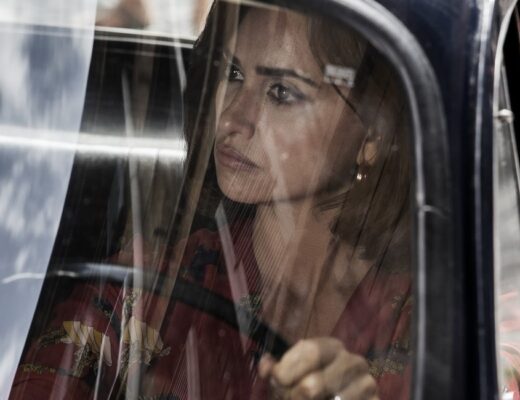Back to the Wharf
Li Xiaofeng’s Back to the Wharf begins with a tragic accident that escalates, shockingly, to murder. After high school student Song Hao (Zhou Zhengjie) stumbles into the wrong house while searching for a friend, he comes across a drunk older man who believes he’s a robber. The man attacks, and in the midst of defending himself, a frantic Song Hao stabs the man and flees. His father Song Jianhui (Wang Yanhui) sees the aftermath of the struggle, and fearful that his son will be imprisoned and the family name ruined, finishes the injured man off instead of calling an ambulance. Now believing himself a murderer, Song Hao is shipped far away by his father, ending his chances at going to college and instead damning him to a life of crushing guilt and menial labor. Fifteen years later, Song Hao (now played by Zhang Yu) returns to his hometown for his mother’s funeral, only to find his father living with a much younger woman (“Your mother didn’t mind,” he says) and with a new, younger son. Song Hao reconnects with his childhood best friend, Li Tang (Lee Hong-Chi), who’s become a shady real estate developer and, unbeknownst to Song Hao or his father, witnessed their crime all those years ago.
This thriller scenario is rife with potential for revenge and blackmail, which Xiaofeng ultimately has little interest in exploring. Instead, Song Hao winds up meeting Pan Xiaoshuang (Song Jia), a woman who remembers him from school and seems determined to strike up a romance with him. Song Hao also stumbles across a young woman named Wan Xiaoning (Deng Enxi), who happens to be the now-teenaged daughter of Song Hao’s victim. The script is very busy, prone to implausible coincidences that are nonetheless partially inspired by several true-life stories of crime and corruption in small-town China. Everything here is rendered like a novel that’s got big chunks of narrative missing, as the film veers from crime saga to rom-com to family melodrama, with a deeply uninteresting main character at its center. Song Hao is supposed to be scarred by his past, but Yu plays him like a somnambulant zombie, seemingly unable to hold a conversation or make a decision. He’s entirely passive, with each of the film’s tertiary characters orbiting around him and acting off of him in some way. Yu simply isn’t charismatic enough to make this kind of quiet stoicism compelling, and while Song Hao’s relationship with Xiaoshuang is sweet enough, it never makes sense why she’d throw herself at him. Still, she’s got personality to spare, and as Song Hao gradually loosens up, the film follows suit. But like much of the film’s narrative, character arcs and story developments feel rushed or otherwise truncated. Soon, the two are married, and are having a baby shortly thereafter. Song Hao begins to tentatively reconnect with his aloof father, he seems to feel some regret for his part in what happened all those years ago. It’s only then that Li Tang comes forward and begins to blackmail Song Hao and his father, demanding that they expedite permits from the city for an illegal building project that will make Li Tang and his corrupt father very wealthy. It all comes out of nowhere, after the film is over halfway over, including a second murder that strains credulity.
Xiaofeng manages some striking compositions here and there: He frequently films characters placed amongst the city’s architecture so that individuals are isolated and separated from each other, while crisscrossing pedestrian walkways intersect and divvy up frames. These visuals are dynamic, suggesting that the city itself has enveloped or otherwise enclosed these people. Key events transpire during torrential downpours, like a kind of divine providence guiding these tragic events. And there’s a remarkable scene late in the movie that finds Song Hao fleeing a party where a drunken Li Tang has been terrorizing him; before literally jumping ship, Song Hao views a fireworks show through a latticework that makes him look like he’s behind prison bars, while the bright neon blues and reds and greens seem to represent a rosy future just out of his reach. But these visual grace notes are few and far between: Xiaofeng mostly settles on an unfussy, quotidian realism that’s largely uninspiring. The story leads eventually, inevitably, to tragedy, but the emotions don’t land like they should. Xiaofeng doesn’t seem to have much of a knack for this kind of long-form storytelling, where balancing plot with characters is of the utmost importance. A great modernist filmmaker like Jia Zhangke or a novelistic humanist Lee Chang-dong could elevate this material, certainly, but Xiaofeng is hardly on par with those masters. There are interesting ideas at play here, about the changing face of modern China and the corruption of fathers infecting their children, but Back to the Wharf is ultimately too tentative, too scattered in its storytelling to make much of these potentially rich thematic threads. Instead, the film ends with a grand, melodramatic gesture that’s supposed to be heartbreaking, but which instead simply connotes relief that the movie is finally over.
Writer: Daniel Gorman

Credit: Shudder
Hellbender
2019 introduced genre audiences to The Deeper You Dig, a tight little rural ghost story, and its makers: John Adams, his wife Toby Poser, and their daughter Zelda Adams. Billed, of course, as The Adams Family, this movie-loving little unit is starting to carve out a niche for themselves as creators of simple, cheap, idiosyncratic stuff buoyed mostly by sheer ingenuity and a sincere approach to horror as a conduit for their everyday self-expression. Their latest project, the appealingly janky witch story Hellbender, is no exception.
Zelda plays Izzy, a somewhat lonely goth teen in an isolated rural community who plays in a goth band with her mom (Poser), whom we also quickly learn is descended from a long line of witches. When Izzy isn’t jamming with mom, she’s out painting in the woods or sneaking around looking for a few new local pals. As her innate powers start to manifest, of course, there’s gonna be some conflict with her mother, who may or may not be aware of just how powerful her little girl might be. In front of the camera the two leads here, mother and daughter, are pretty accomplished. Zelda Adams is the epitome of a moody goth teen (interviews with the actress imply a youthful affinity for the Twilight movies, and good for her), but the very real bond between parent and child translates well to screen, and Ms. Poser seems like the picture of a cool mom.
There’s not a lot of weight to the narrative here but that’s not really important compared to the sheer technical achievement. The family all serve as writers, directors, photographers, editors, and performers. Whoever isn’t on camera is operating the camera. They even write the music (the band is a real band, naturally). That such a DIY production doesn’t seem even remotely amateurish is in and of itself remarkable, but that the Adamses don’t seem to have appropriated too many stylistic touches (say, the slow-cinema pacing, endless static takes, or Kubrick-esque zooms) that have infected so much modern horror is even more surprising. These alleged amateurs seem fully in control of their work formally. The direction is patient without being self-conscious, and that leads to a very welcome narrative economy in this small little story. Hopefully this family can continue to grow their audience; they’re on the cusp of making something relatively transcendent.
Writer: Matt Lynch
What Josiah Saw
The past strikes back with a vengeance in What Josiah Saw, a country-fried slice of Southern gothic that plays like Tennessee Williams by way of James Wan. Director Vincent Grashaw and first-time screenwriter Robert Alan Dilts have crafted an ambitious tale of familial strife and long-buried secrets that is surprisingly epic in both scope and execution, a sheen of prestige momentarily distracting from its over-familiarity and the melodramatic silliness at its core. Divided into four chapters, What Josiah Saw focuses on the Graham family, a broken unit whose farmland in Oklahoma is highly sought after by a big oil company, resulting in its dysfunctional members reuniting after years of separation.
Let’s set the stage. The film’s first section focuses on patriarch Josiah (Robert Patrick), a hard-drinking, temperamental blowhard who still lives on the farm with his simple-minded son, Thomas (Scott Haze). One night, Josiah is visited by the ghost of his wife, who hung herself in the tree in the front yard 23 years prior, and whose body is buried beneath its roots. She informs him of a special task he must perform, one that will apparently free her from eternal hellfire. He employs Thomas in his preparations, even as the details remain vague. In section two, we catch up with the other Graham male heir, Eli (Nick Stahl), an alcoholic, drug-addicted gambler and recent parolee who owes money to local baddie Boone (Jake Weber). He gets involved in an elaborate heist scheme involving “gypsy gold,” while a missing 9-year-old girl also works her way into the events. And section three follows Eli’s twin sister Mary (Kelli Garner), a damaged soul suffering from severe emotional and psychological trauma who is desperate to adopt a child with her estranged husband, Ross (Tony Hale). All of these various threads converge in the film’s final act, as the family is finally reunited in the name of personal and corporate greed, the fallout from which may make recovery impossible.
From the opening moments, Grashaw is keen to establish his film as serious and high-minded, a mode of austerity pervading the proceedings and bringing to mind something like the recent works of Ari Aster. Aerial shots of barren farmland are besieged by a blue filter, while sharp and dissonant strings fill the soundtrack and the mournful wails of a children’s choir occasionally texture the background. There’s to be no confusion that What Josiah Saw is a haunted film about a haunted family, and Grashaw and Dilts seemingly have no patience for levity. The atmosphere is oppressive, almost suffocating, but quite purposely so, and Grashaw shows an assured hand in commanding both tone and attention. It’s unfortunate, then, that the script lets the director down, even as it allows him to indulge his obvious strengths as a filmmaker, but it’s evident that Dilts is indeed a first-time screenwriter, as the story feels too overstuffed by half, the work of an artist who feels the need to get every idea out on paper, at the expense of cogency and flow. There’s enough going on within Eli’s storyline alone to make another entire feature if so desired. At 45 minutes, his section is by far the longest of the film, and while the heist sequence—including an extended bit involving a fortune teller—is legitimately thrilling and well-executed, it only digresses from rather than adds to the central storyline, and is thematically tangential at best. It also succeeds in hampering the development of Mary, who is afforded a scant 15 minutes, although in fairness, it doesn’t seem that Dilts’ strengths particularly lie in excavating the female psyche. There’s a scene involving Mary and a psychologist that is so downright bonkers — its results even more so — that one ponders if Dilts has any familiarity with the adoption process outside of soap opera storylines.
Much of that is to say that there’s an inherent silliness at the heart of What Josiah Saw, one that Grashaw desperately tries to paper over with an impressive combination of artistry and force of will. That he succeeds to the degree that he does is a testament to his raw talent, even as he goes to the “camera slowly pushes in on actor/object/location” well a few too many times in generating scares. But there’s still a palpable sense of tension that Grashaw creates and sustains throughout, effectively building to a climax that delivers the goods — until it doesn’t. Lesson to be learned: Just because you can doesn’t mean you should. The final moments of What Josiah Saw seem especially gross, a cheap bid at shock value that rings hollow and scans as a juvenile, further reinforcing the film’s streak of camp. In his best efforts to counter this, Grashaw also elicits some strong performances from his cast, especially Stahl, who has a face that was made to play “troubled and haunted.” (After this and his recent standout turn in the underrated Hunter/Hunter, a Stahl renaissance wouldn’t be an unwelcome development). What Josiah Saw is ultimately a conflicted film, one that finds its director doing his best to overcome deficiencies with technical prowess, producing images and moments that rattle in the brain even days later. Hollywood will come calling for Grashaw, that much is certain.
Writer: Steven Warner

Credit: Indiecan Entertainment Inc.
Beyond the Infinite Two Minutes
Last August, fresh from the premiere of time-bending action thriller Tenet, Tom Cruise giddily proclaimed: “Big movie. Big screen. Loved it.” Nolan’s movie may have indeed been “big’” but it was a far cry from the industry-saving event so much anticipatory coverage had promised. Instead, its action set-pieces were filtered through an abstruse and inscrutable puzzle-box, navigated by a barely-developed character referred to only as the Protagonist. Its aloofness aside, Tenet remains a fascinating example of auteurist expression and excess, but I couldn’t help but think through its deficiencies while watching the delightful micro-budget sci-fi Beyond the Infinite Two Minutes. Much like Tenet, this gem from director Junta Yamaguchi and writer Makoto Ueda features a complicated time-travel gimmick that grows in complexity until its mechanisms become too overwhelming to track. Yet, Beyond the Infinite Two Minutes is deliciously grounded in both its presentation (an imitation of a single continuous take), its banal double location setting (a café and a small room above it), a charming cast of goofball characters, and most importantly a heartfelt core that never lets the focus slip away into the tangled net of its sci-fi contrivances.
The setup is straightforward even if the time-travel conceit is a bit tricky to unwind: Kato (Kazunari Tosa) runs a coffee shop and lives in the apartment above it, and one day, walking up to his room after work, he is shocked to discover a version of himself broadcasting from the computer screen. This second-Kato, who appears on the monitor with the same outfit and seems to be video-chatting from the shop downstairs, explains that he’s somehow communicating from two minutes in the future, helps first-Kato find a guitar pick, and urges him to go back downstairs. Yamaguchi’s camera, which has diligently followed from the shop to his room, now fluidly trails him back down without cutting away as he rushes downstairs to unravel the mystery. Lo and behold when he returns to the shop, its television screen is now broadcasting a view of his bedroom with his past self in tow. Staring at this paradox in befuddlement, he repeats the dialogue that “future” Kato had told him just two minutes prior, now becoming the one to help “past” Kato find his guitar pick and urge him downstairs. Soon, Kato is joined by co-worker Megumi (Aki Asakura) and a group of curious friends who attempt to puzzle out these time-travel mechanics together, with the ridiculousness ramping to an extreme once they decide to bring the monitor from upstairs down to the cafe and point it at the television creating an infinite time loop in an attempt to grab further paltry two minutes on offer.
The brilliant gimmick of its single-take construction — the film is a composite of numerous takes but the one-take illusion is seamless throughout — fits the conceit perfectly, giving a sense of structure and continuity as we repeatedly follow the characters going up and down the stairway never knowing what they will discover on the other end. Meanwhile, the farcical tone keeps things light even as things become Tenet-level heady. While Nolan’s self-serious brooding becomes frustrating once you lose the thread of his escalating time-travel mechanics, Yamaguchi’s adventure seems to only get funnier as the time-loop spirals out of its characters’ comprehension and control. The greatest strength of Beyond the Infinite Two Minutes, however, is its sweetness, a quality that never gets lost amidst the intricate brain-melting substructure that must have made the act of filming a logistical nightmare of interlaced two-minute increments. Halfway through the adventure, a light romantic thread is introduced and spools itself around the gimmick driving the action. Whatever weaknesses reveal themselves in the clunky final reveal or the wildly spiraling complexities of the gimmick are mollified by a spry 70-minute runtime, a charismatic cast, and a persistent infectious charm. Beyond The Infinite Two Minutes may be a “small” film, but it is exactly the type of lightning-in-a-bottle genius that will eventually get processed into a watered-down American remake. So you should definitely catch it before that happens.
Writer: Igor Fishman
Baby, Don’t Cry
Emblematic of kitchen-sink realism, Jesse Dvorak’s feature debut is a paradigmatic unfurling of anticipated beats and narrativity. Baby, Don’t Cry, written by and starring Zita Bai as our titular protagonist, vacillates through Washington State’s rural flats and the intimacy of a burgeoning relationship with her fellow outcast, Fox. Throughout the film, a sudden yet perpetual volatility plagues both of their compartmentalized daily routines as Baby seeks, as her utmost desire, a kind of stability — a peace. In attending to the process the artists have gone through in the making and distribution of this work, it’s easy, then, for one to observe the care and dedication placed into this lovechild of total collaboration. Unfortunately, Baby, Don’t Cry can’t quite sustain itself on care and dedication alone; operating rather limply, its lack of character interiority proves problematic, and in confluence with an anonymous formal approach.
A sequence close to the end articulates best the lack of cohesion throughout. A teacher — who we’ve seen only once prior (the school setting being one we’ve only ever been introduced to twice and, each time, peripherally) — approaches Baby to explain she’s maybe failing the class. From a medium wide shot, as class is dismissed and the teacher approaches, and cutting to a close-up as Baby stumbles her way through a response: whether this is supposed to nudge viewers towards that point in the film where narrative stakes need to batten down their hatches and reroute to the third act transition, or pile atop further stakes in the already fallen house of cards (evidenced by the fact that an introduction or settlement of external conflicts occurs in each successive scene), Dvorak doesn’t quite clarify. It’s a broad gesture that implicates the film in its knotty momentum, especially having occurred right after a scene where Baby and Fox engage in arbitrary antagonism (a phenomenon so frequent and spastically portrayed that any emotion is neutered and rendered contrived), and right after, do make up and eventually marry. Baby, Don’t Cry has reduced the narrative progression of melodrama and boxed it within aesthetic superficiality. Whether that provides an incisive observation of how American idealism morphs with dominant modes of storytelling and inevitably fails the mass it reaches for, or instead a flattening of signs, wherein an acclimation with prior narratives of this kind feeds the intellection of events (rather than the work itself wrestling with its own distinctions between signifier and signified), remains to be seen. But on the whole, its archetypal framework denotes various textual readings which, when brought together, offer all of a rough amalgam’s understood emotions, trajectories, and designs, yet nothing felt.
Writer: Zachary Goldkind
Alien on Stage
A documentary whose goofy, DIY sensibility matches its endearingly amateur subject matter, Lucy Harvey and Danielle Kummer’s Alien On Stage is the quintessential homegrown hero. Following the most British cast ever assembled, Alien On Stage tells the story of a group of Dorset bus drivers who decide to shake up their annual charity pantomime by taking on their first semi-serious project: a stage adaptation of the iconic sci-fi movie Alien. Despite initially being a flop, when the British public catch wind of the idea, the production explodes, with a crowdfunding campaign sending the cast to London’s West End. With the play becoming a The Room-esque hit, it quickly becomes unclear whether some of the team know they’re performing a comedy or not.
The main problem with Alien On Stage, then, is that it’s very much a work of the stage. The final third of the movie is dedicated almost entirely to the said production, as you’d probably hope from a film like this, but it isn’t entirely clear what substance the documentary half of the film is bringing to the table. While the interviews with the cast are achingly sincere, and the team’s impromptu prop-master is a revelation, the film documentary elements are overshadowed, almost negated even, by its own subject matter. This isn’t helped by the film’s homespun sensibility which, intentionally or not, comes across as simply cheap and slapdash in the absence of any larger vision.
Despite being a delightful farce from start to finish, there’s one way in which Alien On Stage bears a stomach-churning resemblance to its source material, and that’s in the pervading sense of absolute dread. It’s all fun and games at first, following this ragtag group of actors and supporting players while their play is fixed on a local scale, but under the spotlight of national scrutiny, the anxiety that the audience is laughing at them instead of with them is almost too much to bear. Thankfully, Alien On Stage doesn’t trade in any such cynicism or cheap laughs at the expense of its subjects, but instead revels in the utter silliness of the concept while still admiring its sincerity. Just like the play that inspired it, Alien On Stage might be feel-good fluff, but, as the film asserts throughout, that certainly need not be an insult.
Writer: Molly Adams








